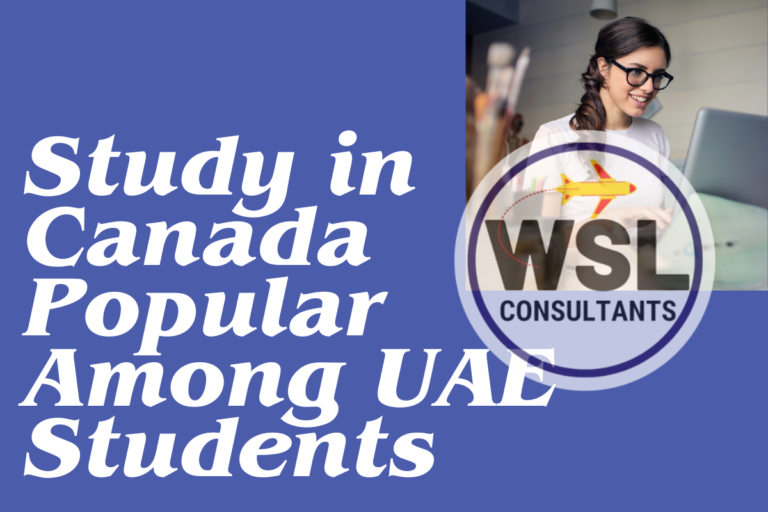How Does the Canadian Education System Differ for UAE Students?
Embarking on an educational journey from the United Arab Emirates (UAE) to Canada represents a significant transition for students, marked by an encounter with a new academic environment and cultural landscape. This blog post delves into the nuances of the Canadian education system and how it contrasts with what UAE students might be accustomed to, shedding light on the opportunities and adjustments that lie ahead.

Educational Philosophies: A Shift in Approach
The Canadian education system is renowned for its holistic approach, emphasizing not just academic achievements but the overall development of students. This contrasts with the more exam-focused education system in the UAE, where emphasis is often placed on memorization and standardized testing. In Canada, education is seen as a journey of exploration, critical thinking, and practical application, encouraging students to engage actively with their learning material and to think independently.
Decentralized Education System
One of the first differences UAE students might notice is the decentralized nature of the Canadian education system. Education in Canada is under provincial jurisdiction, leading to variations in curriculum, grading systems, and even language of instruction between provinces. This contrasts with the UAE, where education policies and curricula are more centralized, with federal oversight ensuring a uniform educational experience across the emirates.
Multicultural and Inclusive Classrooms
Canada’s multicultural ethos permeates its educational institutions, offering a vibrant tapestry of cultures, languages, and perspectives in the classroom. This diversity enriches the learning environment but also requires UAE students to adapt to a broader range of cultural norms and social interactions than they might be used to. The emphasis on inclusivity and respect for diverse backgrounds in Canadian schools can be a refreshing change, fostering a global outlook among students.
Language Proficiency and Bilingual Education
The UAE’s education system predominantly operates in Arabic and English, with English often used as the medium of instruction, especially in higher education. In contrast, Canada offers education in both English and French, depending on the province. For UAE students, particularly those from English-speaking schools, the transition might be smoother in English-speaking provinces. However, those interested in immersing themselves in a bilingual environment might find unique opportunities in provinces like Quebec, where French is predominant.
Interactive and Collaborative Learning
Canadian classrooms are known for their interactive and student-centered approach, where discussion, group work, and presentations are common. This might differ from the UAE’s more traditional teacher-centered classrooms. UAE students may need to adjust to being more vocal and proactive in their classes, participating in debates, and engaging in collaborative projects, which are integral parts of the Canadian educational experience.
Emphasis on Critical Thinking and Problem-Solving
The Canadian curriculum places a strong emphasis on developing critical thinking and problem-solving skills. Students are encouraged to question, analyze, and synthesize information, a shift from the rote learning that can be prevalent in some educational systems. UAE students might find this approach challenging initially but ultimately rewarding as it fosters independent thinking and creativity.
Flexible and Diverse Academic Programs
Canada’s post-secondary institutions offer a wide range of programs and courses, allowing students to tailor their education to their interests and career aspirations. This flexibility can be particularly appealing to UAE students looking to pursue specialized fields or interdisciplinary studies. The ability to customize one’s academic pathway, including options for co-op programs and internships, provides practical experience and enhances employability.
Grading and Assessment
UAE students might also notice differences in grading and assessment. Canadian institutions often use a continuous assessment model, where grades are based on a combination of assignments, presentations, participation, and exams. This approach, aimed at evaluating a student’s overall performance and engagement throughout the term, may differ from the more exam-centric assessment methods used in some UAE institutions.
Support Systems for International Students
Canadian universities and colleges have robust support systems in place for international students, including academic advising, language support services, and cultural integration programs. These resources can help UAE students navigate the academic and social landscape of their new environment, providing support for everything from academic writing to finding accommodation.
Opportunities Beyond Academia
Studying in Canada opens doors beyond the academic realm. The country’s policies on student work, post-graduation employment, and pathways to permanent residency offer UAE students opportunities to gain international work experience and potentially build a life in Canada. These prospects can be particularly attractive for those looking to broaden their global experience and professional networks.
Navigating Cultural Adjustments
The transition from the UAE to Canada involves more than academic adjustments; it’s also a cultural journey. UAE students may experience cultural shock, from the informal student-teacher interactions to the casual social norms. Embracing these differences, finding community among fellow international students, and engaging with Canadian peers can ease this transition, enriching the study abroad experience.
Embracing the Canadian Winter
A lighthearted but practical consideration is the Canadian climate. Students from the UAE’s desert environment may find the Canadian winters a novel experience. Embracing this aspect of Canadian life, from winter sports to the beauty of the changing seasons, can be part of the adventure of studying abroad.
Conclusion
For UAE students, studying in Canada is an opportunity to immerse themselves in a dynamic and diverse educational system, known for its quality, inclusivity, and emphasis on holistic development. The transition involves adapting to new academic practices, embracing cultural differences, and navigating the practicalities of living in a new country. However, the rewards are manifold, offering not just a globally recognized education but a transformative personal experience that prepares students for a successful and cosmopolitan future. The journey from the UAE to Canada, with all its challenges and opportunities, is a passage to growth, learning, and global citizenship.





